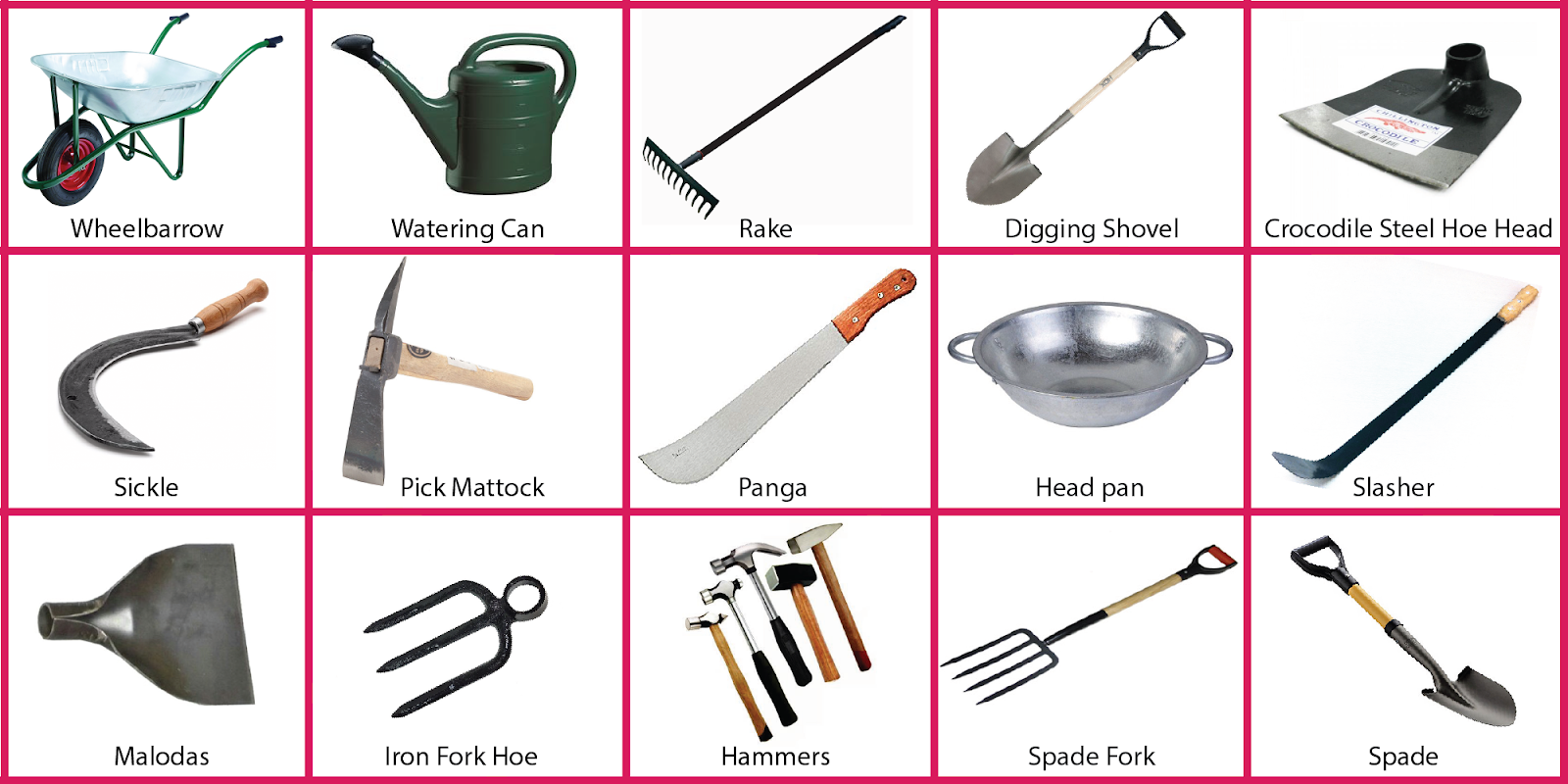Essential Farming Tools Names For Every Farmer
Farming has been a backbone of human civilization for centuries, shaping societies and economies across the globe. As technology has evolved, so too have the tools that farmers use to cultivate their land and harvest their crops. Understanding the various farming tools names is essential for both novice and experienced farmers alike, as it ensures efficient and effective farming practices. Whether you're planting seeds, tending to crops, or harvesting produce, having the right tools can make all the difference.
In this article, we will explore the diverse world of farming tools, highlighting their importance and functionality. From traditional hand tools to modern machinery, each tool plays a crucial role in the farming process. Furthermore, we will delve into the significance of knowing the correct farming tools names, which can enhance communication and collaboration among farmers and agricultural professionals.
As we journey through the various farming tools names, we'll also answer common questions related to their usage and maintenance. Understanding these tools not only aids in efficient farming but also contributes to sustainable agricultural practices. So, let's get started on this informative exploration of farming tools and their names!
What Are the Most Common Farming Tools Names?
Farming tools can be categorized into several types, each serving specific purposes. Here are some of the most common farming tools names that every farmer should be familiar with:
- Shovel: A versatile tool used for digging, lifting, and moving soil.
- Hoe: Essential for breaking up soil, weeding, and shaping rows.
- Rake: Used for leveling soil and gathering debris or hay.
- Tiller: A machine that prepares the soil for planting by breaking it up.
- Plow: Used for turning and breaking up soil to prepare for planting.
- Scythe: A hand-held tool for mowing grass or reaping crops.
- Seed Drill: A device that sows seeds at the correct depth and spacing.
- Sprayer: Used for applying fertilizers, pesticides, and herbicides.
How Do Farming Tools Impact Crop Yield?
The choice and quality of farming tools directly influence crop yield. Proper tools enable farmers to work efficiently, resulting in healthier crops and increased productivity. For instance, using a seed drill ensures even sowing, which promotes uniform growth. Similarly, employing a tiller can aerate the soil, improving its quality and nutrient availability.
What Farming Tools Are Essential for Beginners?
For new farmers, it's crucial to start with a basic set of tools. The following farming tools names are essential for beginners:
- Hand Trowel: Ideal for planting and transplanting small plants.
- Garden Fork: Useful for loosening soil and mixing in compost.
- Pruning Shears: Essential for trimming and shaping plants.
- Watering Can: Necessary for watering plants effectively.
What Are the Differences Between Hand Tools and Power Tools?
Farming tools can be broadly classified into hand tools and power tools. Hand tools are typically operated manually and require physical effort, while power tools are mechanized and can perform tasks more quickly and efficiently. Here are some key differences:
- Efficiency: Power tools usually allow for faster completion of tasks compared to hand tools.
- Ease of Use: Hand tools require more physical strength and skill, while power tools are often user-friendly.
- Cost: Hand tools are generally less expensive than power tools, which may require a significant investment.
How Do You Maintain Farming Tools?
Proper maintenance of farming tools is essential for ensuring their longevity and performance. Here are some tips for maintaining your farming tools:
- Clean After Use: Remove dirt and debris to prevent rust and corrosion.
- Sharpen Blades: Keep cutting edges sharp for efficient performance.
- Store Properly: Store tools in a dry place to prevent damage from moisture.
- Inspect Regularly: Check for wear and tear, and replace parts as necessary.
What Innovations Are Changing Farming Tools Today?
Technological advancements have led to significant innovations in farming tools. Some recent developments include:
- Smart Farming Tools: Tools equipped with sensors that provide data on soil health and crop conditions.
- Automated Machinery: Tractors and harvesters that require minimal human intervention.
- Drone Technology: Used for monitoring crop health and applying fertilizers.
Why Is It Important to Know Farming Tools Names?
Understanding farming tools names enhances communication among farmers, suppliers, and agricultural experts. It allows for better collaboration and ensures that everyone is on the same page regarding tools and their uses. Furthermore, knowing the names of farming tools can help farmers make informed decisions when purchasing or renting equipment.
Conclusion: Embracing the Right Farming Tools Names
In conclusion, familiarizing yourself with farming tools names is crucial for efficient farming practices. Whether you are a beginner or an experienced farmer, knowing the right tools and their functions can significantly impact your productivity and the health of your crops. As agriculture continues to evolve, staying informed about the latest tools and techniques will lead to more sustainable and successful farming.
Article Recommendations
- Charleston White Shot In Chicago
- Natural Hairstyles Crossword
- East Multnomah Soil And Water Conservation District


